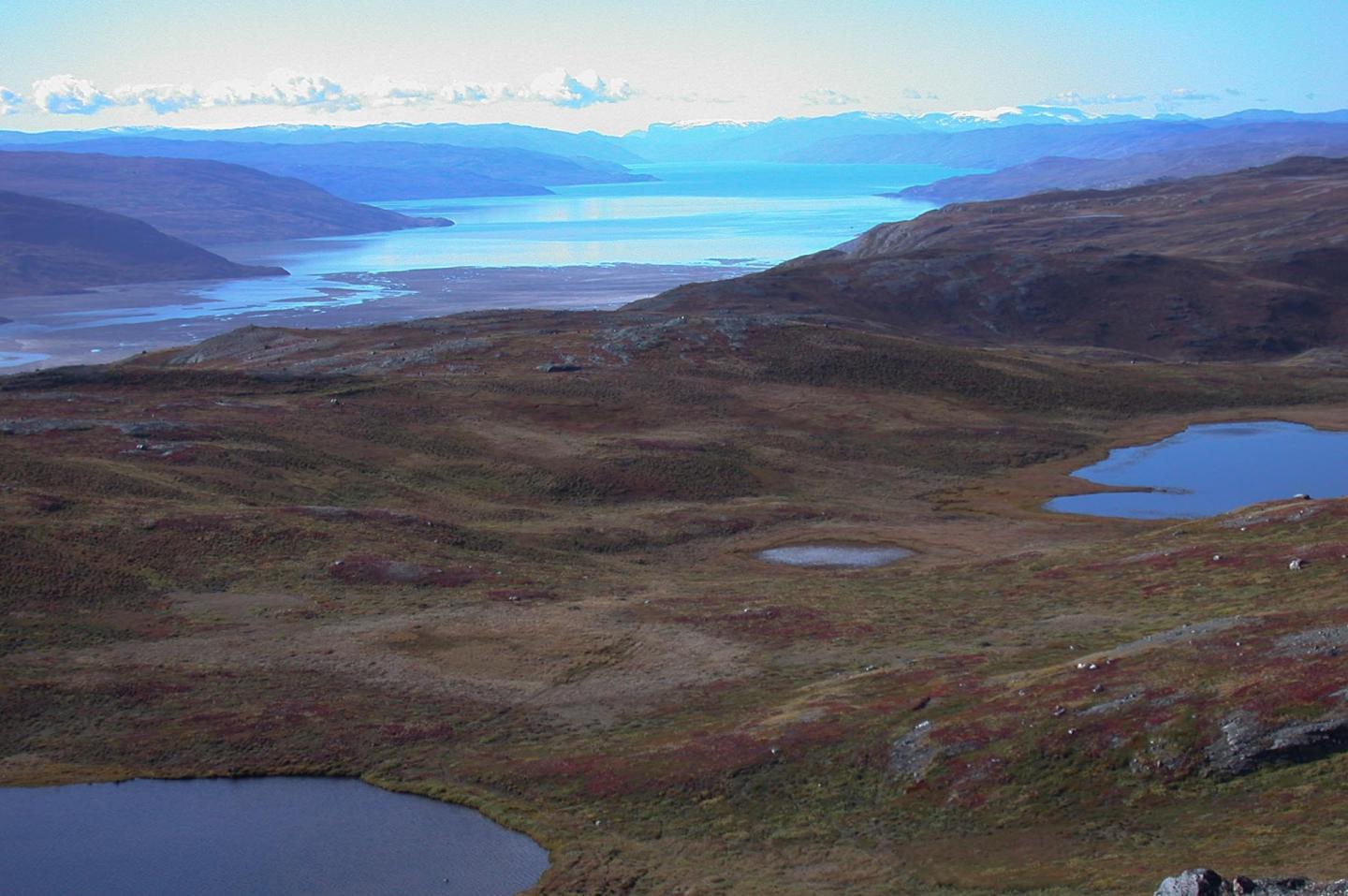
Credit: Sergi Pla-Rabes
New evidence shows that Arctic ecosystems undergo rapid, strong and pervasive environmental changes in response to climate shifts, even those of moderate magnitude, according to an international research team led by the University of Maine.
Links between abrupt climate change and environmental response have long been considered delayed or dampened by internal ecosystem dynamics, or only strong in large magnitude climate shifts. The research team, led by Jasmine Saros, associate director of the UMaine Climate Change Institute, found evidence of a “surprisingly tight coupling” of environmental responses in an Arctic ecosystem experiencing rapid climate change.
Using more than 40 years of weather data and paleoecological reconstructions, the 20-member team quantified rapid environmental responses to recent abrupt climate change in West Greenland. They found that after 1994, mean June air temperatures were 2.2 degrees C higher and mean winter precipitation doubled to 40 millimeters. Since 2006, mean July air temperatures shifted 1.1 degree C higher.
The “nearly synchronous” environmental response to those high-latitude abrupt climate shifts included increased ice sheet discharge and dust, and advanced plant phenology. In lakes, there was earlier ice-out and greater diversity of algal functional traits.
The new evidence underscores the highly responsive nature of Arctic ecosystems to abrupt transitions — and the strength of climate forcing, according to the team, which published its findings in the journal Environmental Research Letters.
Understanding how ecosystems respond to abrupt climate change is central to predicting and managing potentially disruptive environmental shifts, says Saros, one of seven UMaine professors who have been conducting research in the Arctic in recent years.
“We present evidence that climate shifts of even moderate magnitude can rapidly force strong, pervasive environmental changes across a high-latitude system,” says Saros. “Prior research on ecological response to abrupt climate change suggested delayed or dampened ecosystem responses. In the Arctic, however, we found that nonlinear environmental responses occurred with or shortly after documented climate shifts in 1994 and 2006.”
###
Saros co-leads the international working group, the Kangerlussuaq International Research Network (KaIRN), that focuses on recent climate-driven environmental changes in the West Greenland ice sheet, and terrestrial and aquatic ecosystems. The working group also includes three additional members of UMaine’s Climate Change Institute: doctoral students Rachel Fowler and Ben Burpee, and assistant research professor Robert Northington.
Media Contact
Margaret Nagle
[email protected]
Original Source
https:/




